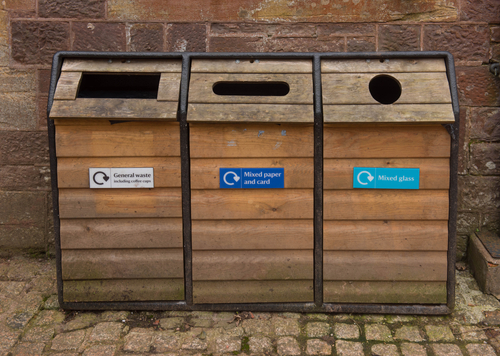Manchester has long been a hub of innovation and enterprise — and as environmental concerns grow, local businesses are leading the charge in finding smarter, greener ways to operate.
From independent cafés in the Northern Quarter to large offices in Spinningfields, companies across the city are exploring sustainable waste solutions to minimise their environmental impact and improve their public image.
Reducing commercial waste is not just about ticking boxes for compliance. It’s about forward-thinking leadership, long-term savings, and responding to a growing demand from customers and clients who value eco-conscious practices.
In this article, we explore how Manchester’s commercial sector is embracing sustainable waste management, and what practical steps business owners can take to get started.
Understanding the importance of sustainable waste practices
In the UK, businesses generate millions of tonnes of waste each year. For companies operating in urban centres like Manchester, the environmental pressure is even more significant.
Manchester commercial waste collection services are evolving rapidly, offering more eco-friendly and efficient options to help businesses meet growing environmental expectations. Landfill capacity is limited, and improper disposal can lead to both legal and reputational risks. But there’s good news: sustainable waste practices are more accessible than ever.
Sustainable waste management focuses on the ‘three Rs’: Reduce, Reuse, Recycle. These principles not only limit the amount of waste sent to landfill but also cut down on the resources needed to process waste materials. For Manchester-based businesses, this means fewer collections, lower waste disposal costs, and a reduced carbon footprint.
Local councils and waste service providers have increased support for greener practices, offering separate collections for recycling, food waste, and general refuse. As Greater Manchester moves towards a more circular economy, businesses that get ahead of the curve stand to benefit — both environmentally and commercially.
Practical strategies for greener operations
Adopting sustainable waste practices doesn’t require a complete overhaul of your operations. In fact, some of the most effective solutions are the simplest. Here are a few key strategies that Manchester businesses are successfully implementing:
- Conduct a waste audit
The first step is understanding what you’re throwing away. A waste audit can help identify how much of your waste could be recycled or avoided altogether. This might reveal that single-use items, packaging, or food waste are bigger issues than expected.
- Separate waste streams
Clear labelling and separate bins for recyclables, food waste, and general rubbish can drastically improve recycling rates. In communal buildings or shared office spaces, coordinating with neighbours can enhance efficiency and reduce costs.
- Choose the right waste partner
Working with a provider that specialises in eco-friendly commercial waste collection in Manchester ensures your materials are handled responsibly. Look for waste companies that prioritise recycling and offer transparent reporting so you can track your sustainability progress.
- Reduce single-use materials
Where possible, switch to reusable or compostable alternatives — especially in food service and hospitality settings. Manchester has seen a rise in zero-waste cafés and refill stations, reflecting a broader consumer trend.
- Engage your team
Your employees are key to the success of your waste strategy. Training sessions, clear signage, and regular updates on progress can keep sustainability top of mind and create a stronger sense of workplace responsibility.
A great example of this cultural shift can be seen in some of Manchester’s co-working spaces, where green initiatives are part of the membership experience — from composting schemes to plastic-free events.
The long-term benefits for businesses
Investing in sustainable waste solutions is about more than environmental impact — it’s also smart business. In today’s marketplace, consumers and clients increasingly choose brands that align with their values. Demonstrating a commitment to eco-friendly operations can strengthen your reputation and build customer loyalty.
Additionally, many green practices lead to tangible cost savings. Reducing food waste, cutting down on unnecessary packaging, or switching to a more efficient waste provider can all improve your bottom line over time.
A notable example is Contact Originators, a Dukinfield-based packaging firm, which achieved zero waste to landfill by partnering with a waste recovery specialist to ensure all site waste is either reused, recycled, or converted to energy. This kind of milestone not only enhances environmental performance but also signals to clients and investors that a company is future-focused and responsible.
For businesses in Manchester looking to grow responsibly, sustainable waste management also supports broader goals such as achieving green certifications, qualifying for environmental grants, or attracting partnerships with like-minded organisations. Local initiatives — including those promoted by Manchester’s climate change agencies — are providing more tools and incentives than ever before.
And as Manchester continues to invest in green infrastructure, including low-emission zones and carbon-neutral targets, businesses that make changes now will be well-placed to thrive in a more sustainable economy.
Manchester’s business community is no stranger to innovation — and when it comes to sustainability, waste management is one of the most impactful areas to address. By adopting eco-friendly solutions, engaging teams, and working with the right partners, commercial enterprises can reduce their environmental footprint without sacrificing efficiency.
Whether you’re running a retail shop, restaurant, or digital start-up, sustainable waste practices are no longer optional — they’re an opportunity to lead the way.



